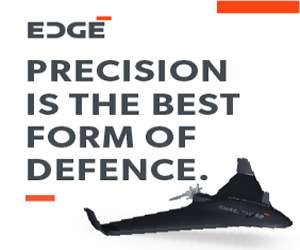| a | |||
Defence & Security News - Japan |
|||
| Monday, July 21, 2014 09:09 AM | |||
| Japan approves export of military equipment with sensors for missiles and submarine development. | |||
Japanese
military contractors are taking their first steps toward selling weapons
abroad since Prime Minister Shinzo Abe relaxed an export ban, a politically
sensitive shift for a nation that long hesitated to turn its technology
prowess into arms-sales profits. |
|||
 Japanese Prime Minister Shinzo Abe. |
|||
On
Thursday, the Ministry of Defense approved exports of a sensor made by
Japan's largest military contractor, Mitsubishi Heavy Industries Ltd.
for use in air-defense missiles manufactured by Raytheon Co. of the U.S.
The ministry also cleared a Japan-Britain research project involving technology
for air-to-air missiles.
A week earlier, Mr. Abe and Prime Minister Tony Abbott of Australia signed an agreement to collaborate on submarine development. Analysts say the deal could give Australia access to a propulsion technology that allows Japanese submarines, built by Mitsubishi Heavy and Kawasaki Heavy Industries Ltd., to remain submerged for unusually long periods. The government says Japanese arms manufacturers need to be able to export in order to lower the country's high cost of procuring weapons. Because the industry is fragmented and production runs are small, Japan sometimes pays twice or three times as much as other countries' armed forces for comparable weapons, analysts say. And the country has been mostly cut off from international weapons-development joint ventures, which are increasingly used for complex, expensive weapons systems. The largest Japanese arms manufacturer is Mitsubishi Heavy, with $3 billion in military revenue in 2012, according to the Stockholm International Peace Research Institute. That is one-twelfth the total of Lockheed Martin Corp. of the U.S. and puts the Japanese company only 29th among military contractors world-wide, according to the Stockholm institute. Under the export deal that the government approved Thursday, Mitsubishi Heavy will be permitted to supply sensors to Raytheon for Patriot Advanced Capability-2 missiles destined for Qatar. The PAC-2 is an older version of the Patriot system, so the sensor is no longer produced in the U.S., officials said. Mr. Tsuzukibashi said other potential exports include the C-2 transport aircraft, made by Kawasaki Heavy, and the US-2 seaplane, produced by ShinMaywa Industries Ltd. Japan has been talking to India for several years about the US-2, which can be used for civilian maritime-rescue operations as well as military functions. But analysts say the high cost of the plane, about $100 million, has been a barrier, and the countries haven't reached a definitive agreement. Because of the high prices and political sensitivities surrounding overseas sales of complete weapons systems, analysts say it is more likely that Japanese military contractors will focus their export efforts on parts, including sensors and advanced building materials such as carbon fiber. |
|||
Japan approves export of military equipment with sensors for missiles and submarine development 2107
- Posted On















